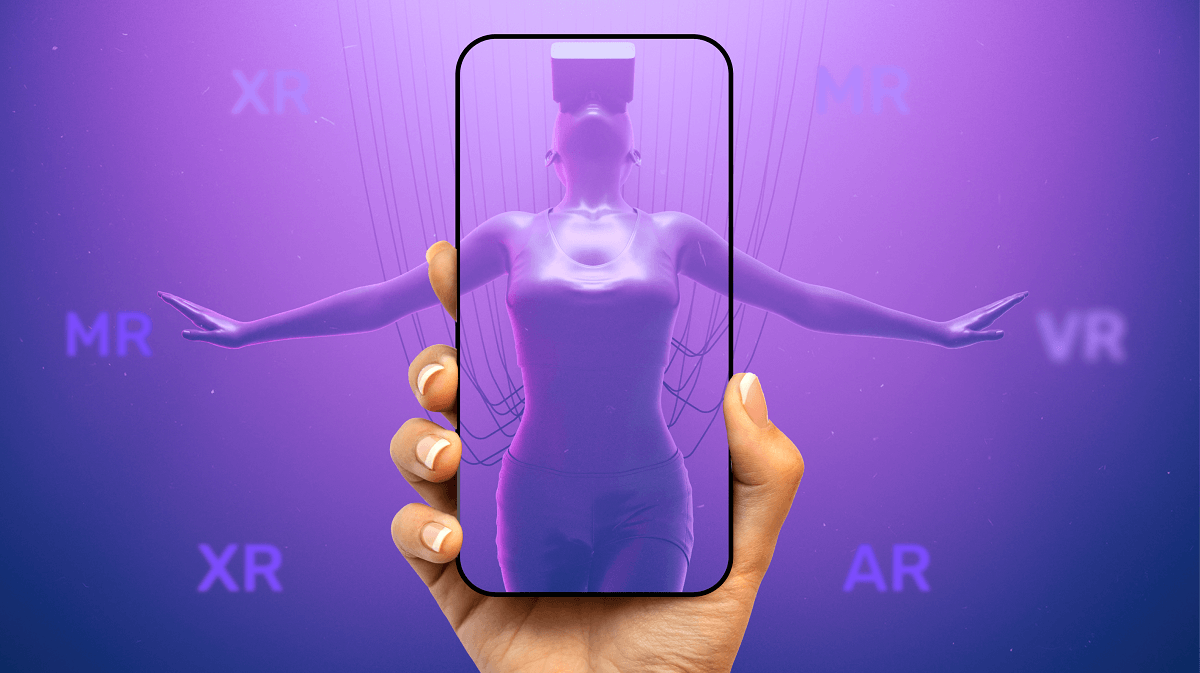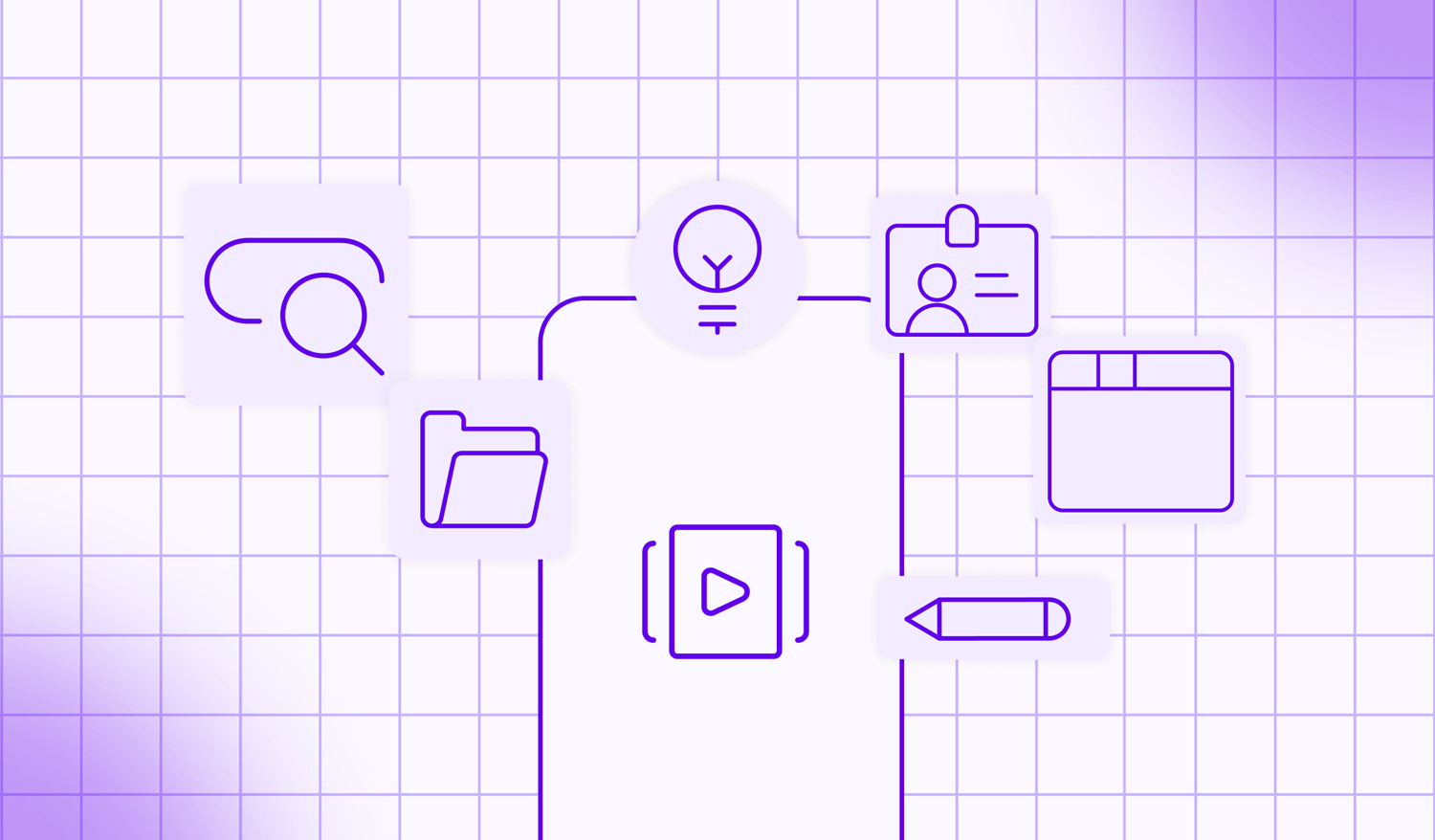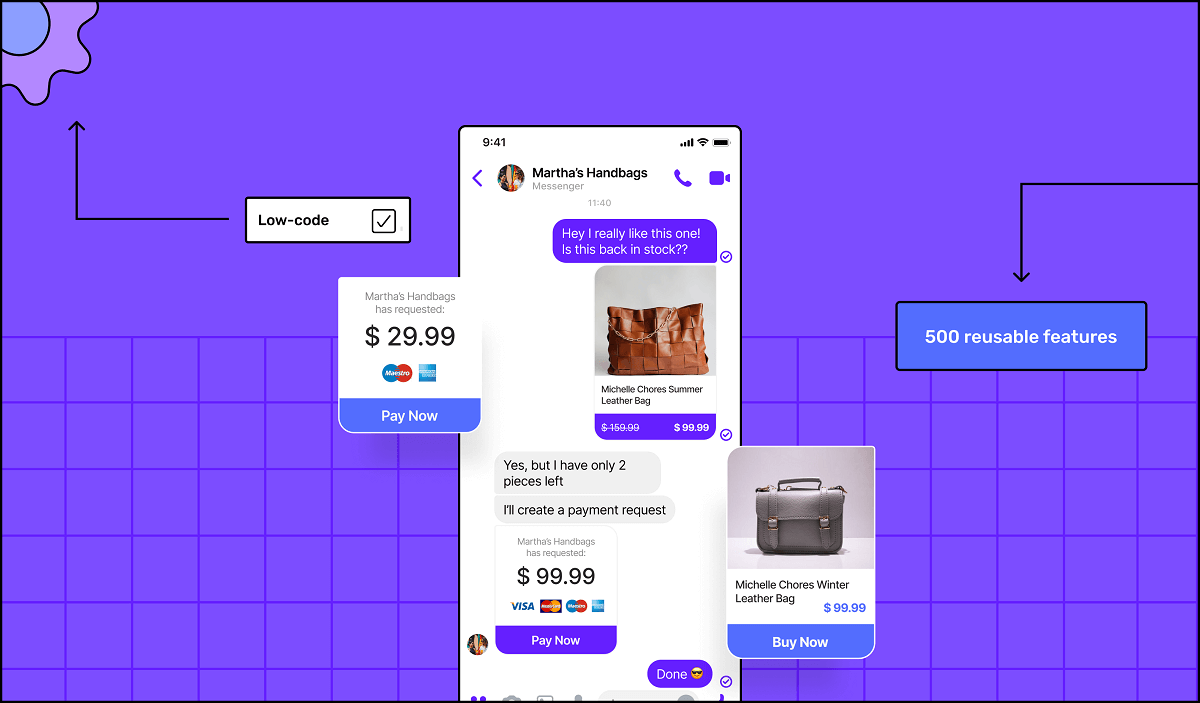The metaverse — a fad or the future? It’s still in the early days, so it’s hard to say. But what we can say for certain is that if current trends persist, the metaverse will have major impacts on mobile app development.
According to Strategic Market Research, the global market size for the metaverse in 2022 is valued at $47.48 billion. With a compound average growth rate (CAGR) of 39.44%, it’s forecast to reach a massive $678.80 billion by 2030.
There’s a sense of excitement and urgency around the metaverse and other Web3 technologies. As you prepare your business to shift into this new virtual realm, this article will serve as a guide to how the metaverse and other trends will impact modern mobile app development.
What is the metaverse?
The metaverse represents a new era of web experience. Users are transported from the traditional internet experience into a connected virtual, and augmented, reality universe.
This definition is still abstract and difficult for many to wrap their heads around. What exactly will the metaverse look like? Will it be a video game, or maybe some worse and more immersive version of Zoom?
Let’s hope not. Many tech giants and startups are already creating a presence in the metaverse and argue that this lack of a coherent definition is due to the metaverse’s ongoing production. It's currently too new to create a solid definition of what it means. But this is normal with emerging technologies, the internet started to take off in the 1970s, for example, and many thought it would be a harbinger of a Matrix-style end of the world.
So, why should you care about this new technology? Shouldn’t you wait it out and see if the fad passes? We know from looking at past digital revolutions that it's not a good business decision. For the most part, the companies that were a bit too late to the party during the Web 1.0 and mobile revolutions got left behind.
What could mobile app development look like in the metaverse?
The metaverse has the potential to change mobile app development drastically. Developers can create extremely novel and highly interactive experiences — something you should pay attention to long-term as the technologies evolve.
Travis Scott hosted a concert in the virtual world Fortnite, which 12.3 million players attended. This new type of engagement and experience is something that you can capitalise on no matter what industry you work in.
App development is also becoming increasingly more democratised as people gain access to easy-to-use tools. The future of mobile app development will include metaverse platforms, and allow developers to experiment with new features to excite customers in simple ways that don’t require enormous buy-ins.
Where could mobile app development go next?
The future is unpredictable, but that makes it exciting. The possibilities of where the metaverse and Web3 could take mobile app development in the next decade or two will make you reimagine your brand's digital future.
Want to start your app project with us?
Book a demoSpeak with one of our product experts today.
By proceeding you agree to Builder.ai’s privacy policy and terms and conditions

AI app building
AI can, and is, being leveraged to improve customer experience in mobile apps. For example, Careem, a Middle Eastern rideshare app, is using targeted facial recognition AI to improve security and confirm that drivers are who they say they are.
It is also using AI to provide users with a highly accurate estimated time of arrival, taking into consideration factors such as local weather, prayer times, and even Iftar times during Ramadan.
AI's revolutionary power in mobile app development comes from the ability to create personalisation at scale, and this will change how development teams operate.
For example, UX teams often collect customer preference data and use it to guide their design and increase user engagement. Often they will put their mobile app through various tests, including A/B testing, usability tests, and heat maps, to see how accurate their predictions are.
Leveraging AI in mobile app development means these techniques may go extinct in the future. AI can gather and analyse immense amounts of data and recommend user experience improvements — that will generate revenue — at a faster speed, allowing developers to speed up their improvements and quickly validate ideas.
Wearables
Wearables are a growing consumer electronics category and offer key differences compared to traditional devices, such as they are highly mobile, have smaller form factors, including health sensors, etc. These features offer new interaction mediums and data sources that developers can use as they create apps going forward.
Mobile apps and wearables also have the ability to communicate in real-time. This can be harnessed by apps in sectors such as healthcare, where medical professionals can get a real-time status update on their patients.
Internet of Things
Devices are not only evolving to be worn, but users are also becoming more connected in every aspect of life. Smart devices in the home and in cars are creating more digital touchpoints in people's lives, and this trend is likely to continue to grow.
Developers could widen their interactions with consumers by taking advantage of these tech ecosystems, creating seamless user experiences that follow customers through their day-to-day interactions.
The changing face of mobile app development
The current moment presents a real opportunity to be curious, test drive new ideas, and experiment with new and emerging technologies. Web3 and the metaverse are set to shake up how mobile apps are developed and allow you to reimagine how you engage with your customers.
Discover more about the future of mobile app development in our latest ebook
Want to know more about the state of coding and development in today’s industry and what to look forward to in tomorrow’s world? Check out our latest eBook: The future of coding: App building made easy.
Alexandra is the Content Lead at Builder.ai. With 4+ years of experience across B2B tech marketing and SaaS solutions, Alexandra specialises in creating accessible AI and Machine Learning content for enterprise. She has a BA in English Literature and Creative Writing from Royal Holloway, University of London.












 Facebook
Facebook X
X LinkedIn
LinkedIn YouTube
YouTube Instagram
Instagram RSS
RSS


